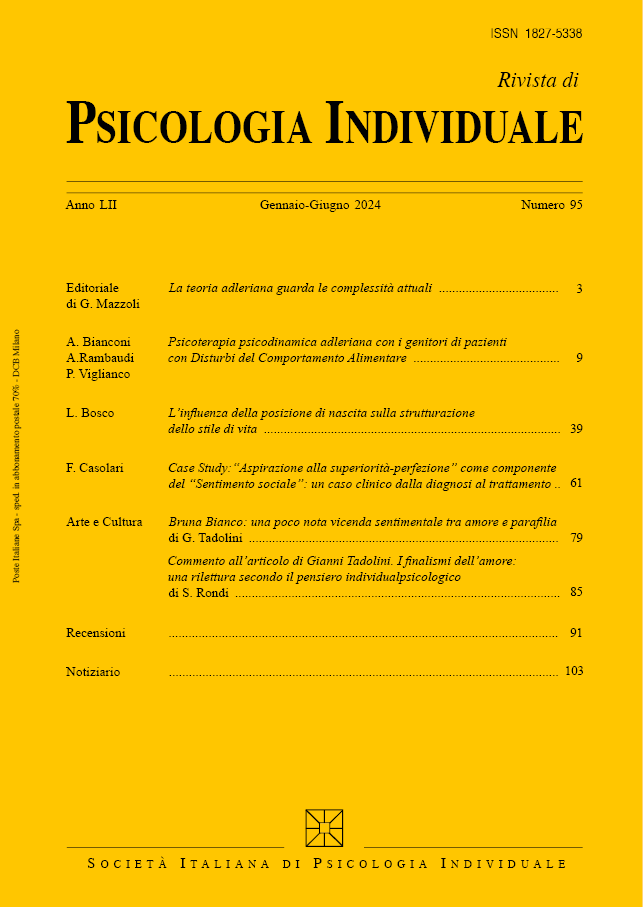EMPATHY AND ENCOURAGEMENT STRATEGY IN THE CHANGE PROCESS
Keywords:
emboided simulationAbstract
Metanalyses of clinical research and brain imaging techniques validated psychodynamic psychotherapy effectiveness: but at now it’s been poorely described the way of proceeding into the deep, out of conscience, of this treatment. These investigations are crucial to activate therapeutic factors at the bases of processes of change. Contributions of research about child neuropsychiatry, cognitive sciences and neuroscience confirm previous conceptions of Individual Psychology: the encouraging process, consisting in the interaction between therapist’s and patient’s personality, represents the effective chance to change Life Style. Empathic comprehension, real core of the encouraging process, was defined by Adler “late assumption of maternal function”. Based on new acquisitrion about mirror neurons as neurobiological substrate of empathic communication, processes like the embodied simulation and the intentional attunement would be necessary to change empathic communication in mutual empathic comprehension between patient and therapist. Both of them internalize at a procedural level, more implicit than esplicit, the mutual behavioral aspects and emotive expressions. Moments of meaning are effective only if able to activate moments of meeting. These intrapsychic and relational paths, further highlighted by neuroscience, amplify therapist’s ethical responsability in the interaction, reciprocally changing, of the setting






